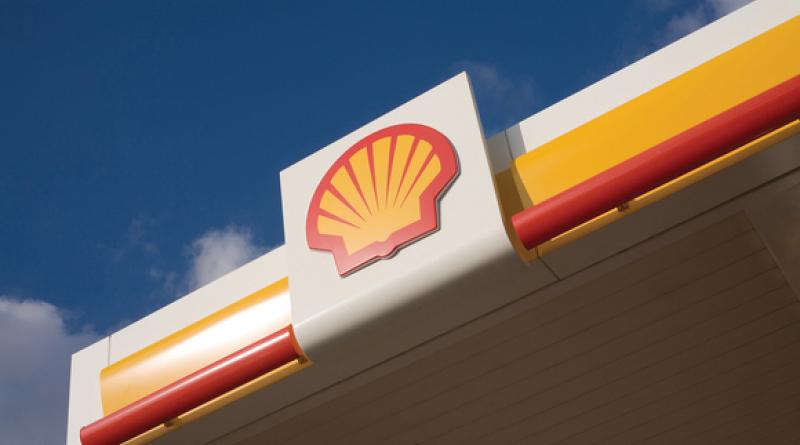'Welcome ambition': Shell to unveil net zero emissions plan.

Oil giant to update investors on sweeping new strategy to deliver net zero emissions across its entire value chain by 2050
Shell is to outline plans today detailing how it intends to become a net zero emission energy business by 2050 "or sooner", including strengthened targets to deliver net zero emissions across its operations, energy use, and crucially its wider value chain.
The oil giant said it would publish a series of "detailed steps" on how it plans to meet the net zero goal at its Responsible Investment Annual Briefing today, including new medium and long term emissions targets and a pledge to "pivot towards serving businesses and sectors that by 2050 are also net-zero emissions".
It comes during an extremely trying period for the global oil industry, with the International Energy Agency (IEA) yesterday forecasting global oil demand will fall 29 per cent in April and nine per cent this year as a result of the coronavirus pandemic. IEA executive director Fatih Birol yesterday said 2020 was likely to be "the worst year in the history of global oil markets".
But Shel chief executive Ben van Beurden suggested the firm's net zero efforts would not be phased by the current crisis.
"With the Covid-19 pandemic having a serious impact on people's health and our economies, these are extraordinary times," he said. "Yet even at this time of immediate challenge, we must also maintain the focus on the long term.
"Society's expectations have shifted quickly in the debate around climate change. Shell now needs to go further with our own ambitions, which is why we aim to be a net zero emissions energy business by 2050 or sooner. Society, and our customers, expect nothing less."
Specifically, Shell said it will pursue an ambition to be net zero for all the emissions from the manufacture of its products - essentially covering so-called Scope 1 and 2 emissions - by 2050 at the latest.
Moreover, in a significant move the company has enhanced its emissions targets for the products it sells, known as Scope 3 emissions.
The company will confirm today that it is to accelerate its previous Net Carbon Footprint ambition to be in step with society's aim to limit the average temperature rise to 1.5C and in line with the goals of the Paris Agreement on Climate Change. "This means reducing the Net Carbon Footprint of the energy products Shell sells to its customers by around 65 per cent by 2050 (increased from around 50 per cent), and by around 30 per cent by 2035 (increased from around 20 per cent)," it said.
The plans are likely to face criticism from green groups given the targets would allow Shell to continue to sell fossil fuels for decades to come, enabling continued investment in new oil and gas capacity and relying heavily on a massive increase in the use of carbon offsets.
Richard George, head of Greenpeace UK's climate campaign, said a "credible" Net Zero plan would see Shall commit to ending all drilling for new oil and gas.
"Instead, investors are being fobbed off with vague aspirations that don't tackle Shell's monstrous carbon footprint and pass the buck to Shell's customers to offset their emissions," he said. "This is not a Net Zero plan, it's a plan to drive us deeper into climate emergency, which will continue to put lives and livelihoods at risk."
However, sustainable investors gave the proposals a warm welcome, while urging Shell to now deliver on the new goals.
"This announcement significantly increases Shell's ambitions and commitments," said Adam Matthews, director of ethics and engagement of the Church of England Pensions Board, board member of the Institutional Investors Group on Climate Change (IIGCC), and co-lead of engagement with Shell as part of the Climate Action 100+ group of investors. "It is indicative of Shell's confidence in not only navigating the immediate situation but rightly sets the focus on developing net-zero pathways in key sectors that shape the demand for energy. Ultimately, it will be by developing and supporting net zero pathways in these sectors that we will achieve the goals of the Paris Agreement."
His comments were echoed his fellow co-lead at Climate Action 100+, Peter Ferket of investment giant Robeco, who said the new ambitions would build on the 2018 joint statement between Shell and Climate Action 100+ that set initial emissions targets and saw the oil giant enhance its climate disclosure and governance measures.
"[The new plans] prove that the strong and committed engagement of institutional investors with Shell can help accelerate the pace of change to deliver the goals of the Paris Agreement," he added. "It raises the bar and sets out an approach for others in the oil and gas sector to follow."
The plan is the latest in a string of moves from Shell and other oil majors to bolster their emissions reductions strategies. Earlier this year BP similarly unveiled wide-ranging net zero ambitions, while a number of top oil firms have acquired leading clean tech firms in recent years as they have sought to diversify their portfolios.
Shell today acknowledged that its current operating plans and budgets do not yet reflect the newly announced ambitions. As such, the company is now expected to begin work on redrawing these plans "to reflect this movement towards its new net-zero emissions ambition".
Stephanie Pfeifer, a member of the global Climate Action 100+ Steering Committee and CEO, Institutional Investors Group on Climate Change (IIGCC), said the onus was now on Shell and the wider oil and gas industry to deliver on its new goals.
"It's imperative we see companies across the entire oil and gas sector put strategies in place to achieve net zero emission if we are to tackle climate change," she said. "This applies to the fuels and products companies sell, as well as emissions from operations. Investors will now look to other energy companies to match, and build on, the welcome ambition Shell is showing. Engagement with Shell will also continue as investors support the company in taking the steps needed to align its business with the goals of the Paris Agreement."
In related news, meanwile, Total is also facing increasing pressure from its shareholders to step up its climate targetsalso faced pressure from shareholders, after a group of investors yesterday tabled a resolution calling on the French oil major to set absolute emissions reduction targets for its entire business and value chain aligned with the Paris climate goals.
The group of 11 shareholders represents around 1.35 per cent of Total's capital. Led by French asset manager Meeschaert, the group said it would present its full resolution during the French oil giant's general assembly meeting on 29 May.
16 April 2020
Business Green






